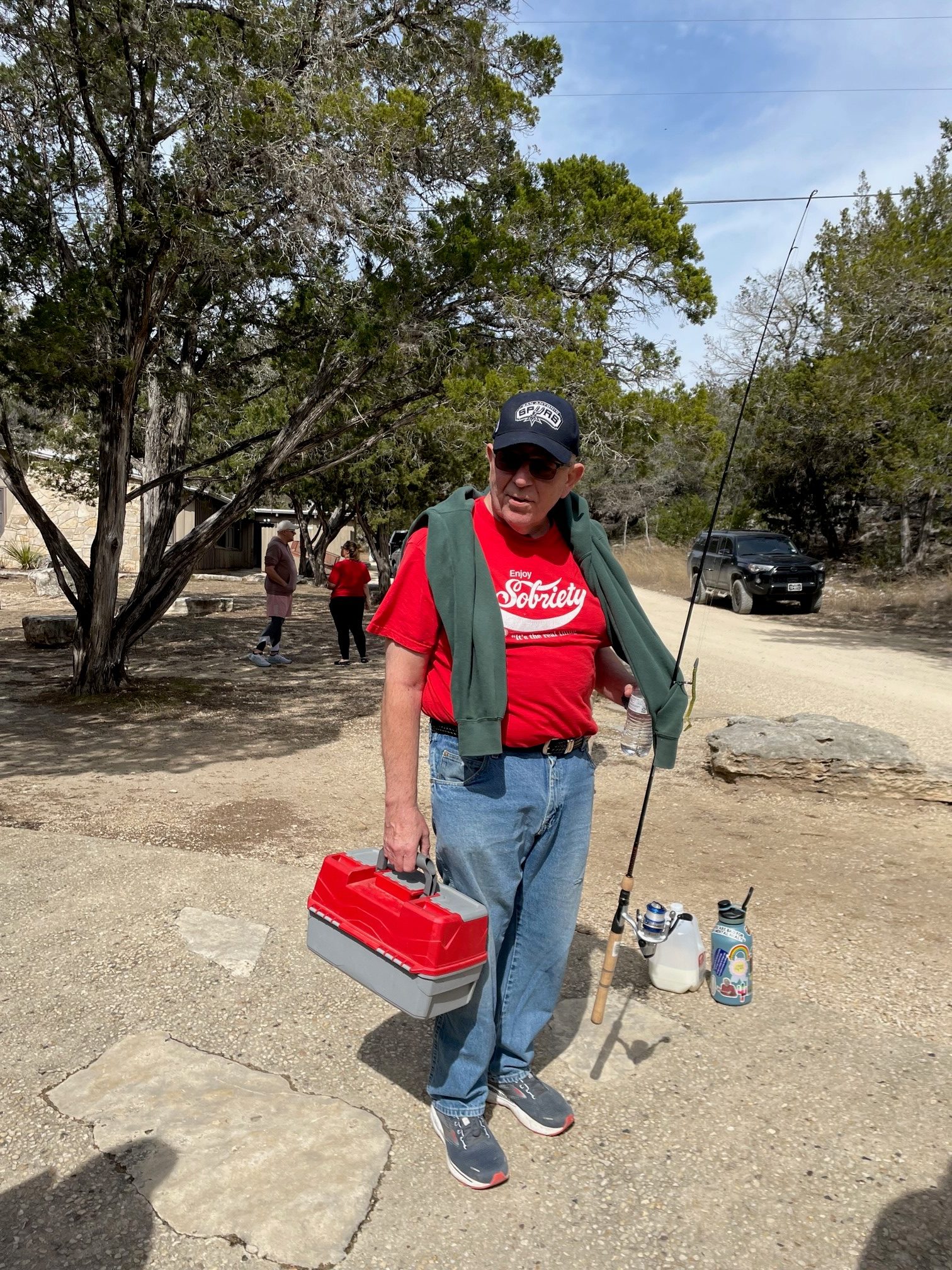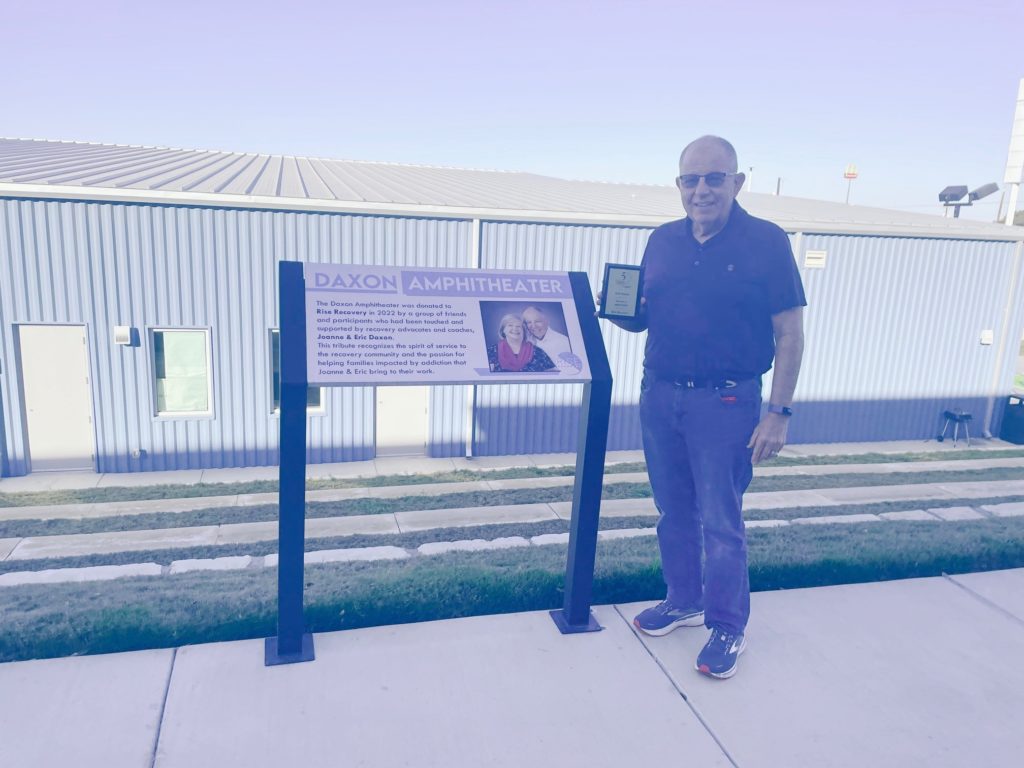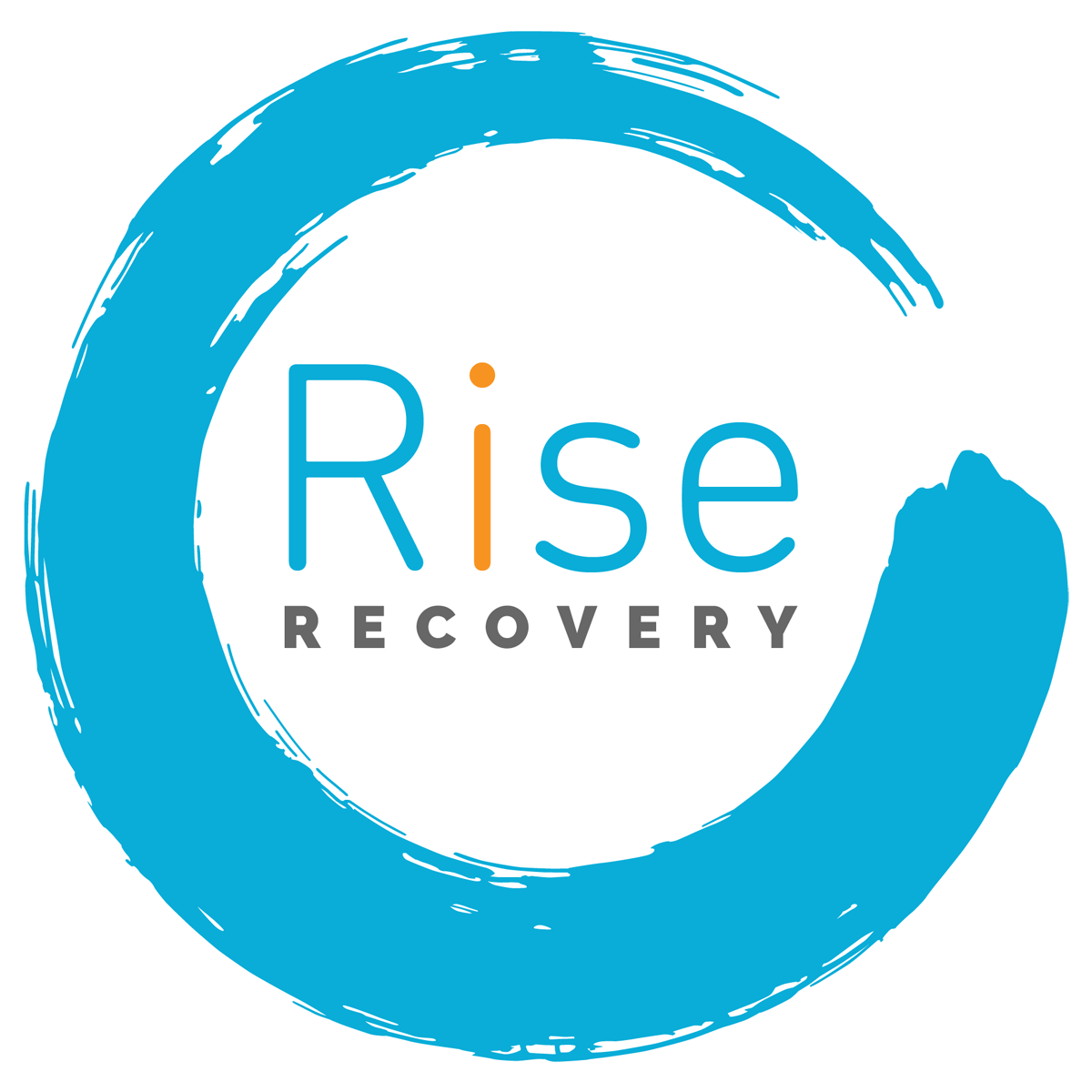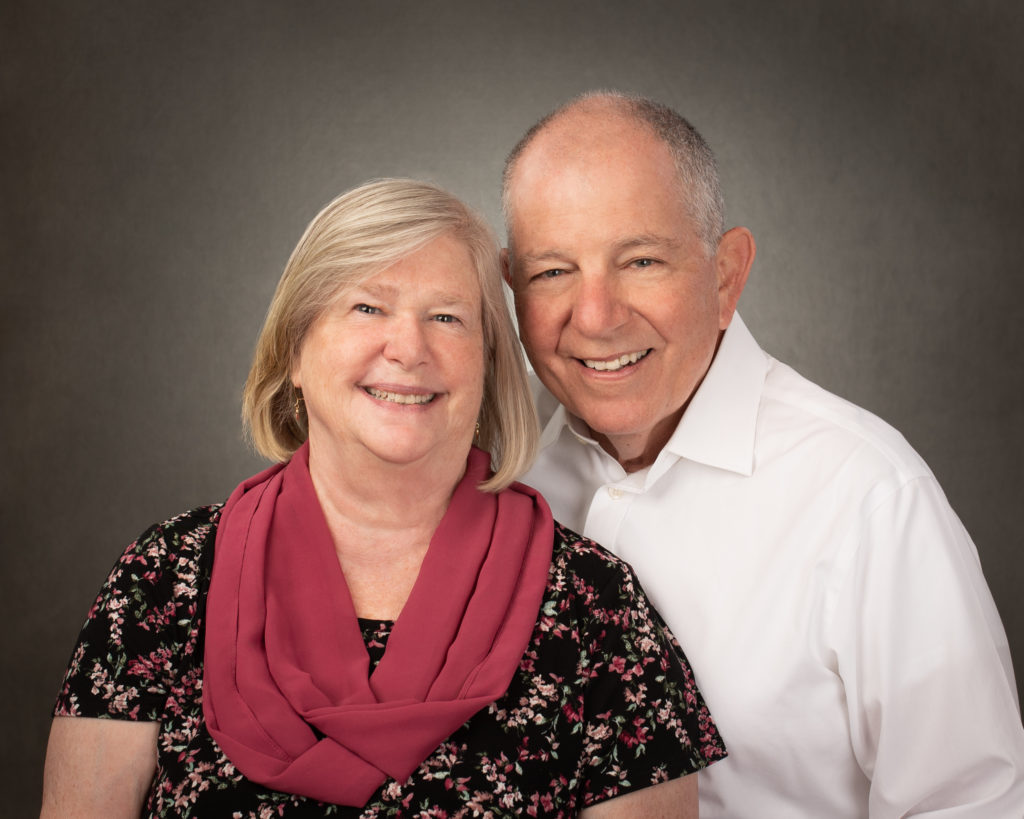A fisherman with a PhD. A family man and an Army Colonel. A literal nuclear physicist who holds a Certified Recovery Support Peer Specialist credential, Eric is never exactly what he seems. Eric Daxon is a cheerful, funny, and wholesome jokester of a peer recovery counselor. He’s big on puns and even bigger on laughter. Eric celebrated 5 years with Rise Recovery in February.
- Favorite Ice Cream: Buttered Almond (only available on the corner of 38th Street in Mount Holly, NJ)
- Favorite Color: Blue (the color of his wife’s eyes)
- Favorite Flower: Daisy (they remind him of his wife)
- Go-To Karaoke Song: Sweet Home Alabama
- Hobbies: Fishing, Playing the harmonica

Q: What is your PhD in?
A: Health Physics. From the University of Pittsburg in 1992.
Q: You’ve earned a lot of letters behind your name. If we listed them all, how would they read?
A: Col. Eric Daxon, CRSPS, BS, MS, PhD
Q. So recovery is a family business for you. Your wife, Joanne, is part of Recovery Werks, another recovery focused organization. And she wrote a book that’s on my shelf. What was the title?
A: A New “Normal” Now
Q: And what’s the book about?
A: It’s the story of our family. When my kids were in the middle of using [substances] and just starting into recovery. It covers from about 1996 to 2000 or 2001.
Q: You once told me that back then you didn’t feel comfortable dropping your 13-year-old daughter at an adult-focused meeting like AA. Why?
A: The average age in an AA meeting is 50. Putting a 12 or 13-year-old in a room of 50-year olds just doesn’t work.
Q: Because a 12-year-old and a 50-year-old aren’t truly peers?
A: Yes. Plus, there are people in those meetings who are trying but not yet sober. If you’re drinking, you’re deadening. To make the meeting more helpful for other people and to really get the most benefit out of it yourself, you’ve got to be your authentic self. But drinking does change that. It changes your authentic self. Just smelling alcohol on someone else’s breath can be triggering as well.
Q: So instead, you brought your children to Rise Recovery?
A: Yes. And we also joined the Family Program meetings in 1996.
Q: Some people say that you can’t get sober in your hometown. Is that why you moved to San Antonio?
A: That’s not what I’ve seen. Because people that live in San Antonio for their entire lives get sober here. It’s harder, but it’s about changing people places, and things change. The people you used with don’t go to the places where you use and get rid of the things that remind you of using, and you can do that without leaving town. I mean, as soon as we showed up here, my daughter found the drug use because it’s really easy to do. And the first person she introduced me to, I think, was her drug dealer.
Q: Why do you think it’s important that the parents be in our family program?
A: So if the kids want to use, they can use, and the geographic solution just doesn’t work. The problem with minors is they can’t change their parents. If their parents are enabling, either through codependency or actually using, they can’t just say, “Well, I’m not going to hang around with my parents anymore.”
And that’s one of the reasons we want to get the parents into recovery, because they will change. They will change how they approach the kid. And so the people the kids hanging around with, he will change them when they get into recovery because they’ll just change on their own.
Q: I’ve heard a rumor that you’re working on a book?
A: Yes. It’s a guidebook for coaches working with families. So I completed a first draft, sent it to an editor, a professional editor, and she sent me 25 pages of comments. I’m working through the comments now. Hopefully sometime summer or winter, it’ll be finalized.
Q: And you put out a CD?
A: Yes, it’s called “How To Play Piano In 5 Minutes.” I thought I was supposed to sell a whole bunch. I wasn’t. No, I made the CD for one person, apparently. We ran into this lady at first Friday in downtown San Antonio. She was at a shop and she said, “Eric, I just wanted to tell you that I was going to commit suicide, but I listened to your CD, and I didn’t.”
So I was supposed to make one CD and hand it to her. Instead I made 1,000. And I still have maybe 700 left.
Q: How did you end up going from a parent in the family program to a peer recovery counselor?
A: I spent 30 years in the Army, and initially I started thinking about retirement at 20 years. I thought high school teacher sounds good. No, not a high school teacher. And then about 25, 26, 27 years, when the kids started getting sober, I thought, counselor? I could be a counselor.
What I didn’t realize at the time was God was saying, “No, I’ve got other plans for you, Eric. I want you to go off and do this research stuff with this research institute. That’s where I want you to go, and I want you to stay there until the summer of 2017.”
But I didn’t come to Rise until the winter of 2017, so I basically said no to leaving. So He laid me off. And the next week there was a free course to be what was then called a PRSS (Peer Recovery Support Specialist) now RSPS (Recovery Support Peer Specialist.) So I took the free course, started interning here, found out that, yeah, this was the right thing for me to do at this particular point in time. This is where God wanted me, and as of today, still wants me to be. So that’s why I’m here.
Q: And somehow now five years have flown by?
A: Somehow five years went by. I don’t know how that happened, but when I look back, just a lot of changes. When I first got on, we were lucky if we got one or two people at coffee. Just major changes.

Q: One change is the “Talent No Talent Show” that you head up annually?
A: There’s one reason I’m so hot on the “Talent No Talent Show.” In 1997, I got voted to be the family group representative in the show, and I was voted in because I wasn’t there. Instead of volunteer, it was volun-told.
So I picked up a harmonica the day before, played. Sounded really crappy. I wasn’t going to play unless I could play something that sounded okay. And I found a sweet spot on the harmonica. I’ve got enough rhythm to make it sound good, so I thought, okay. So I played, tried to play “Oh Suzanna.” It was terrible. And then I played the sweet spot, and people came up and said, “Eric, that was really funny. You acted like you couldn’t play, but you can really play.”
So I kept playing, and being able to play the harmonica is one of the things that got me through the rough spots. I got something out of that really helped me, and I’m hoping that gets passed on.
Q: Why do we do these types of activities?
A: One of the things, the main thing is to teach folks how to have fun again and to let them know it’s okay to laugh. Even though I came in thinking, “What the heck is wrong with these people? They’re laughing. Drug addiction is serious.”
It is serious. But one of the cures, I guess, is learning to laugh again. For the family member. It is okay to laugh in the middle of a crisis. That’s how you build your resilience.





